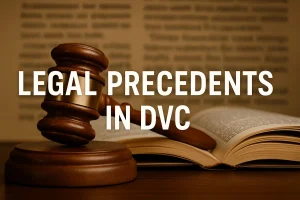Filing a diminished value (DV) claim can help you recover lost car value after an accident. But for many drivers, the claim process drags on far longer than expected.
This article explains why DV claims get delayed and, more importantly, what you can do about it. You’ll learn the most common causes of these delays, how to identify bad faith tactics, and practical steps to speed things up. By the end, you’ll know exactly how to take control of your DV claim and move it forward.
Quick Answer: Yes, DV Claims Get Delayed—But You Can Speed Them Up
Common Delay Lengths
DV claims can take anywhere from a few weeks to several months. A simple claim with strong documentation may be resolved in 30–45 days. If documents are missing or the insurer drags its feet, it could take 90 days or more.
Fastest Way to Unblock a Stuck Claim
The fastest solution is to submit a clean, organized claim with all repair records and a professional appraisal. Then, follow up consistently in writing. Escalate if you don’t get a clear update within 7–10 business days.
What Causes DV Claim Delays?

Missing or Incomplete Documentation
If you didn’t include repair invoices, photos, or a clear appraisal report, your claim may stall. Insurers won’t move forward without proper paperwork.
Disputes Over Repair Quality or Damage Scope
If the insurer questions whether the repairs were done correctly or how much damage occurred, they may delay until a re-evaluation is complete.
Adjuster Workload or Neglect
Some adjusters are managing dozens of cases at once. Others simply don’t follow up unless you push them. Delays often come down to poor internal communication.
Valuation Disagreements Between Parties
If you submit a DV value that the insurer disagrees with, expect pushback. They might delay to pressure you into accepting a lower offer.
Lack of Appraisal Support or 3rd Party Evaluation
Claims without a third-party appraisal are more likely to stall. Insurers may say the DV amount is unclear or lacks verification.
Bad Faith Tactics to Watch Out For
Repeated Requests for the Same Info
This is a red flag. If the insurer keeps asking for documents you already sent, they may be trying to wear you down.
Long Gaps in Communication
If you go two or more weeks without an update after submitting everything, the delay may be intentional.
Unclear or Shifting Justifications for Delay
If the reason for the delay keeps changing, or they can’t explain it clearly, it may signal bad faith behavior.
Delaying to Push a Low Settlement
Some insurers stall your claim, then offer a small amount to “close it quickly.” Don’t fall for it—especially if your appraisal supports a higher payout.
How State Laws Affect Claim Timelines
Typical Claim Response Deadlines
Some states require insurers to acknowledge or respond to a claim within 15–30 days. Check your local law to hold them accountable.
How Fast Insurance Has to Pay Once Settled
After agreeing to a payout, insurers usually have a deadline to issue payment—often 10–30 days. Delays beyond that may be illegal.
Filing a Complaint With Your State Regulator
Your state insurance department can investigate delays. Filing is free and usually gets a response from the insurer within days.
What You Can Do to Expedite the Process

Organize Your Repair and Appraisal Docs
Submit everything up front: accident report, repair receipts, before/after photos, and a certified DV appraisal. Put it all in one PDF or email chain.
Follow Up in Writing With Specific Questions
Avoid vague calls. Send an email asking for a specific update: “Can you confirm if my claim is under review?” Set a 48–72 hour response expectation.
Escalate to a Supervisor or File a Complaint
If you’re getting stonewalled, ask for a supervisor. If that fails, file a complaint with your state’s department of insurance. Most states allow this online.
Hire a DV Appraisal Expert to Support Your Case
A professional appraiser can back your claim with hard numbers and credibility. Their report often speeds up approval.
When to Get Legal Help
If the Insurer Ignores or Delays Beyond Reason
If it’s been more than 30–45 days with no progress, a lawyer can pressure them into action.
When the Claim Value Is Significant
If your claim is worth $3,000 or more, legal representation might be worth it. Bigger claims tend to face more resistance.
If You Suspect Bad Faith Behavior
A lawyer can identify violations of state insurance law. You may be entitled to additional compensation if the delay was intentional.
Expert Tips to Prevent DV Claim Delays
Get a Preemptive Appraisal Report
Don’t wait for the insurer to ask. Get your appraisal done early and submit it with your claim.
Use Certified Mail or Email for Every Submission
Keep a paper trail. If needed, you’ll have proof of every document sent.
Track All Communications and Deadlines
Keep a simple log: dates, who you spoke with, and what was said. This helps if you need to escalate or file a complaint.
Final Thoughts: Don’t Let Delays Kill Your DV Claim
Diminished value claims don’t have to drag out. Most delays happen because of missing documents, adjuster inaction, or bad faith tactics.
Take control by submitting a complete claim, staying organized, and applying pressure when needed. If the insurer still won’t move, you have legal and regulatory options.
Your time is valuable. Don’t let their delay tactics cost you money.



